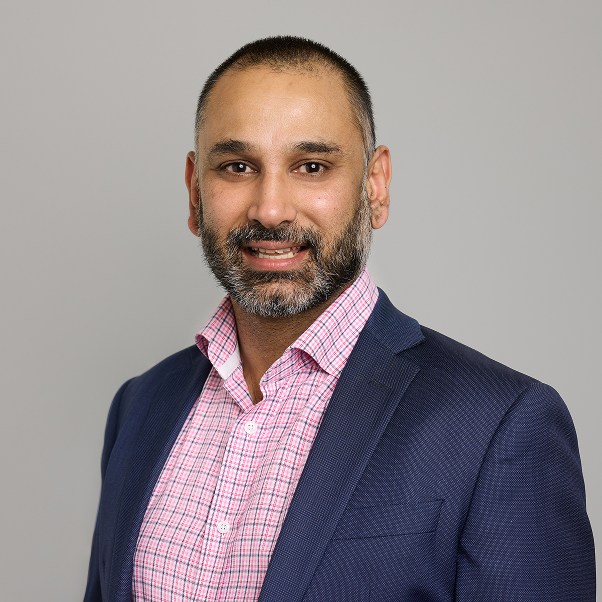Financial
Roadmap
A clear, personalised path to your financial goals.

Private health insurance… do you have it? Do you need it? Are you paying too much? Are you adequately covered? Choosing your health insurance can be a difficult decision to make, and even once you have selected your cover, you often continue to ask yourself these questions.
For many people, the fundamental idea of health insurance makes sense. It can mean choosing your doctor and having your own room in hospital. It can also cover the cost of health care that is not included within Medicare, such as dental, optical or hearing services. Plus, there are Federal Government incentives to take out private health insurance… but the cover you choose could depend on its overall affordability and how you perceive its value.
In a country like Australia, where our public system offers a high level of care, you may think insurance is not necessary. Today we look at some key factors to consider when making your decision.
There are many health care costs that are covered by Medicare… like a trip to a bulk billed doctor or a routine blood test. There are other services that are partly covered, such as an appointment with a specialist.
But there are also a whole range of costs that aren’t covered by Medicare at all. And it is these therapies and treatments that could leave you holding a sizable bill if you don’t have private cover.
This is where you need to assess your current and potential future needs, and the needs of your family, to identify which type of insurance best fits your requirements. If you are a fit and healthy 28 year old, then you might choose to forgo insurance for a couple more years… whereas if you are 45 and your teenager needs braces, you might adjust your cover to help with orthodontic costs.
Each person’s situation is unique, and this is why there are so many variables within health insurance policies. It’s important you tailor your cover, so you have access to the most appropriate benefits and aren’t paying for cover you don’t need.
As mentioned, the Government encourages people to take out private health insurance through financial incentives.
The Medicare Levy Surcharge (MLS) is an additional 1-1.5% tax paid by higher income earners who don’t have private hospital cover. A single person earning $90,000 would pay a $900 annual surcharge… which is higher than the cost of some basic hospital-only policies. Taking out basic cover could be a helpful tax strategy but won’t necessarily offer you an extensive array of health care benefits.
In addition to the MLS, the Government also has the Lifetime Health Cover (LHC) loading which is applicable if you are 31 or over and purchase hospital cover for the first time. This loading is calculated at 2% for every year over 30 you are when you take out your cover.
For example, if you are 35 when taking out the cover, you could pay an additional 10% on the cost of the premium for 10 years. The maximum LHC is 70% and once you have paid the extra loading for 10 years on continuous cover, it is no longer applicable.
For some, these surcharges are enough motivation to invest in insurance, so the next step becomes selecting a policy and comparing inclusions. This is again an area where your unique circumstances need to be considered.
Recognising your current health requirements should be relatively straightforward. You know whether you have any pre-existing conditions and whether any family members will have specific needs in the near future, for example family planning or elective surgery.
But you should also consider your family history and take note of any possible hereditary conditions. Does your father have diabetes? Or did your grandmother suffer from osteoporosis?
Thinking about conditions that can run in the family should be part of the process when selecting your cover. If you leave something out now, it could end up costing much more later when you try to update your policy, as it could then be considered a pre-existing condition.
Being prepared for unexpected accidents is also a critical component of your health insurance. If you suffer an injury and need surgery, your private health cover could significantly reduce your out of pocket expenses.
When it comes to your extras cover, this is definitely an area that you can mix and match according to your current needs. These are more flexible and easier to adjust as your life stage changes. But it is important to note that most come with a waiting period, so take this into consideration in your planning.
When asking yourself if you are adequately covered, the answer really depends on where you see the insurance’s value. There are many variables that will influence your views, including your age, your overall health and wellbeing, your annual salary and possibly your occupation.
Insurance provides you with peace of mind… knowing that you are covered for the unexpected. It is important to be prepared for any possibility and to have a safety net in place should something go wrong. Unplanned surgeries and hospital stays come with hefty costs, and if your health cover isn’t adequate, you might have to withdraw from your savings or even access credit to pay for the services you receive.
If you find that you aren’t receiving the level of cover you require, then it is worth comparing policies and insurance providers until you find something more suitable.
Our final note is to make sure that the cost of your insurance always fits within your budget. Everyone’s financial situation is different, so it’s important to select a level of private health insurance that will suit your lifestyle.
There are many online tools to help you compare insurance providers, but some of them are ‘for-profit’, so keep that in mind when you do your search. The Federal Government has an online tool that compares policies and incorporates your MLS and LHC loading. It’s a great place to start.
And don’t forget to regularly reassess inclusions and make adjustments as needed. You don’t want to still be paying obstetrics cover when you are in your sixties.
If you have any questions or would like to discuss more personal insurance topics with our team of Financial Advisers, please contact us today. Read more insurance articles.
Every client journey begins with a conversation. We look closely at where you are now, what matters to you, and what’s possible. Then we structure our advice to match.
A clear, personalised path to your financial goals.
Proactive strategies to maximise your tax savings.
Tailored plans aligned with your goals and risk profile.
Regular guidance to keep your plan on track.
Early retirement and working professional
When Tim received an overseas medical settlement, he and Adam had just 14 days left in a 90-day window. They needed clear guidance, fast. A referral led them to First Financial.
“We’re in totally different life stages, but First Financial built a strategy that supports us both. From urgent legal steps to ethical investing, they handled every detail with calm, care, and real expertise. It’s financial freedom without compromise, and we couldn’t have done it without them.”

Retired and semi-retired
Referred by friends who were helped through aged care, Craig sought secure financial guidance after inheriting funds.
“We feel very secure with First Financial, the income just comes in, and we know everything is being looked after. It’s not just safe, it’s smart. We’ve recommended them to others because we genuinely believe in the team.”

Retired widow
Lyn stepped into financial management for the first time after her husband's passing. With patience and care, First Financial supported her through grief, learning, and empowerment.
“After my husband passed, I was completely unsure where to start. First Financial gave me the space to learn, to ask questions, to grow confident. They drew a diagram that I still have. And now, I sleep well at night knowing I’ve got someone in my corner.”

Retired business owner
After decades of running a successful pharmacy, John sought financial guidance to simplify decision-making and support long-term planning.
“I feel genuinely supported by First Financial. I can ask anything, and there’s no pressure, just clear advice and real care. The money’s growing, I’m not stressed about it, and I feel completely at ease for the first time. I don’t miss work, but I’d miss the support I get from First Financial.”

Retired
Jan's husband managed the finances until entering aged care. Jan gradually stepped into the financial picture with First Financial’s support.
“The money just comes in. I don’t have to think about it. And I know they’re always there. They’ve always been there in the background, just quietly making things work.”

Newly retired
As retirement neared, Larry and Virginia were ready to enjoy travel, family, and freedom, without uncertainty. A friend recommended First Financial, and from the first meeting, they had a clear plan, a safety net, and people they trusted.
“We’ve travelled the world, Europe, Sri Lanka, Vietnam, without once stressing about the money. They made everything feel simple and gave us the confidence to live well. We feel secure because we know exactly where we stand, and that peace of mind means everything.”








You can use the form below to make a general or initial enquiry.
You can also book a 15-minute call with an adviser by clicking the blue button below.
You can use the form on the right to make a general or initial enquiry.
You can also book a 15-minute call with an adviser by clicking the blue button below.
Fill in your details and briefly let us know how we can help.
We’ll reach out to schedule a time that suits you.
Enjoy an obligation-free initial meeting to discuss your goals and explore how we can guide you toward financial confidence.
Let’s start the conversation.
We look forward to hearing from you!
Level 9, 90 Collins Street,
Melbourne, VIC, 3000
Office Hours
Mon – Fri | 9:00 am – 5:00 pm